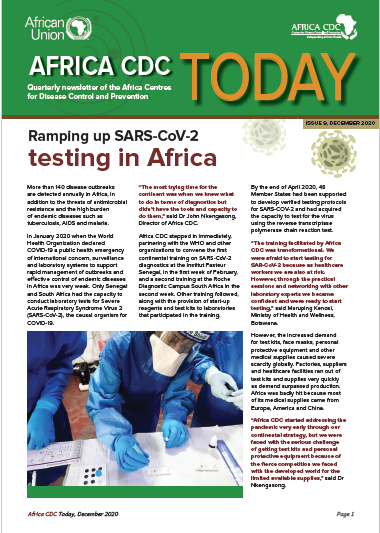More than 140 disease outbreaks are detected annually in Africa, in addition to the threats of antimicrobial resistance and the high burden of endemic diseases such as tuberculosis, AIDS and malaria.
In January 2020 when the World Health Organization declared COVID-19 a public health emergency of international concern, surveillance and laboratory systems to support rapid management of outbreaks and effective control of endemic diseases in Africa was very weak. Only Senegal and South Africa had the capacity to conduct laboratory tests for Severe Acute Respiratory Syndrome Virus (SARS-CoV-2), the causal organism for COVID-19.
“The most trying time for the continent was when we knew what to do in terms of diagnostics but didn’t have the tools and capacity to do them,” said Dr John Nkengasong, Director of Africa CDC.
Africa CDC stepped in immediately, partnering with the WHO and other organizations to convene the first continental training on SARS-CoV-2 diagnostics at the Institut Pasteur Senegal, in the first week of February, and a second training at the Roche Diagnostic Campus South Africa in the second week. Other training followed, along with the provision of start-up reagents and test kits to laboratories that participated in the training.
